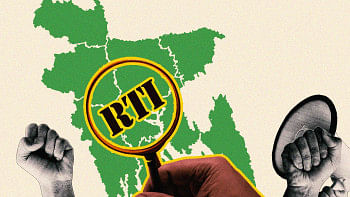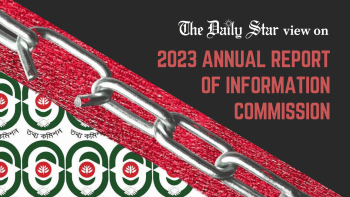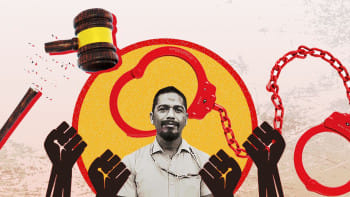RTI kept alive by rural, semi-urban citizens

There is conflicting feedback from our readers on the operation of the Right to Information (RTI) Act in the country. Some believe that in the existing political climate, there is little scope for the success of a law that seeks to empower citizens to probe into the government's inner workings. Others consider that by building incremental gains achieved through developing a close working relationship between government officials and citizens based on low-level RTI interventions, a culture of openness can be cultivated where deeper probes may be possible.
As a result, the more knowledgeable and upper echelons of society with a better understanding of how the government works have largely avoided the law. In contrast, those at the grassroots level with little knowledge about the intricacies of governance, but more interested in ensuring that the government fulfils its responsibilities to the people, have found the law useful and convenient.
Today, we bring to light several real-life instances that vividly illustrate the positive outcomes and growing influence of the RTI Act at the grassroots level. These success stories serve as compelling proof as to how citizens, often with NGO support, have effectively used the RTI mechanism to address issues and bring about significant and positive change.
In Nilphamari Sadar upazila, women patients who required ultrasonogram tests often had to get them done at private clinics despite the high cost. But those who could not afford them depended on the free services offered at the upazila hospital. However, they found the place unsafe, with no privacy during the process and no female nurse to perform it. One of the male nurses was insensitive and made the patients feel unsafe. Frustrated, two members of an RTI group in the area, Anupha Begum and Shahida Begum of Bahalipara village, took matters into their own hands. They submitted two separate RTI requests in March 2024 to the officer-in-charge of Nilphamari General Hospital, seeking information on measures taken by the authority for the safety and privacy of the patients at the upazila hospital during the ultrasonogram process. They also asked for the names of doctors, nurses, and technicians who were supposed to run the service. Their proactive approach as citizens paid off. Within a month, the hospital authority responded, stating that safety and privacy measures had been introduced at the upazila hospital and provided a list of doctors, nurses, and technicians entrusted with the job. A positive outcome like this served as loud publicity for the power of the RTI Act and the role of citizens in bringing about change.
In the same upazila in Nilphamari, some members of the local RTI group in Ramnagar Union, during in a group discussion, felt that despite repeated government assurances, the services provided by the local community clinic were poor. The medicine it provided for free included only paracetamol, antacids and the like; the more expensive medication had to be bought from the market. So, some of the members submitted individual RTI requests to the upazila health office, asking for a list of services provided at the Ramnagar Community Clinic as well as a list of medicines supplied free of cost to the public by government hospitals and clinics. Shortly, replies came listing 59 free medical services and 42 types of medicines distributed by the institutions in a given period. The disclosures caused a stir in the community as many listed services existed in name only. Armed with the information, the group decided to mobilise the local population, ensuring that they knew what to demand from the authorities concerned.
In Dinajpur Sadar upazila, a local RTI group was surprised to find that the counter to deposit money in savings accounts, pension schemes or fixed deposits was kept open only from 10am to 10:10am in the city's main post office. No transaction was accepted after that period, and the number of persons served was limited to 10 only. It caused great hardship to the people, particularly those who were illiterate. So a member of the group, Astarul Alam, decided to submit an RTI request to the postmaster of Dinajpur asking for a copy of the official decision on the deposit counter's hours of operation, and the list of transactions performed by the said counter from April 24 to May 6 this year. Upon learning about the RTI request, the head of the post office directorate in the region directed the postmaster to provide the requested information urgently, copying his mail to other important postal officials in the district for their knowledge and necessary action. In his response to the applicant, the postmaster informed that all post office activities remained open from 9am to 4pm, including deposits, and provided the number of people served within the period specified by the applicant.
These examples illustrate the point we have made in these columns time and again: it is mainly through the efforts of ordinary citizens that the RTI Act has been kept alive and kicking across Bangladesh. Their efforts are not just about demanding better services and transparency, but also about expanding the scope of democracy in the country. Though not always met with friendly responses, their actions are a powerful testament to the strength and resilience of democracy. They also help with the proper implementation of many government programmes for the needy and underprivileged.
However, while they smoothen the path, it will be the responsibility of the more knowledgeable members of the civil society to take the law to greater heights, so that more sensitive governance issues can be brought into the purview of citizens' inquiry. This collective effort of the citizens is a true embodiment of the power of democracy, making them feel the significance of their role in the governance of their country.
Dr Shamsul Bari and Ruhi Naz are chairman and assistant director (RTI), respectively, of Research Initiatives, Bangladesh (RIB). They can be reached at [email protected].
Views expressed in this article are the authors' own.
Follow The Daily Star Opinion on Facebook for the latest opinions, commentaries and analyses by experts and professionals. To contribute your article or letter to The Daily Star Opinion, see our guidelines for submission.

 For all latest news, follow The Daily Star's Google News channel.
For all latest news, follow The Daily Star's Google News channel. 












Comments